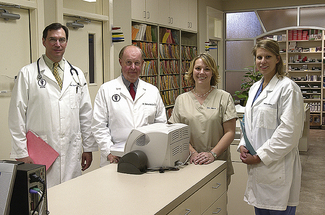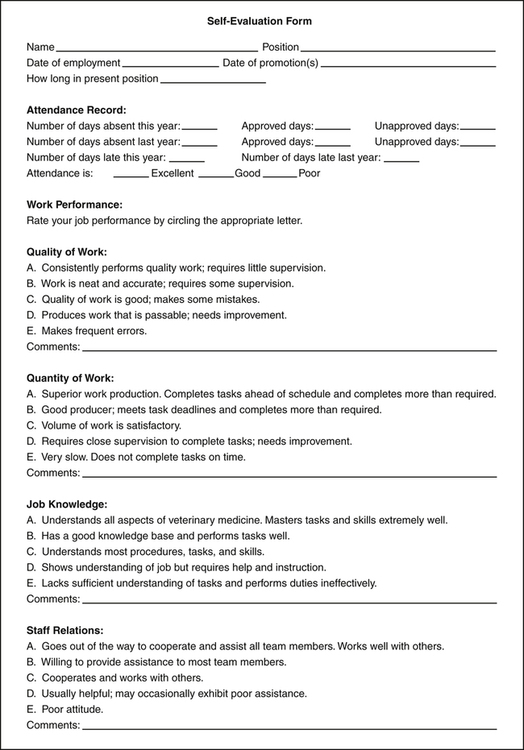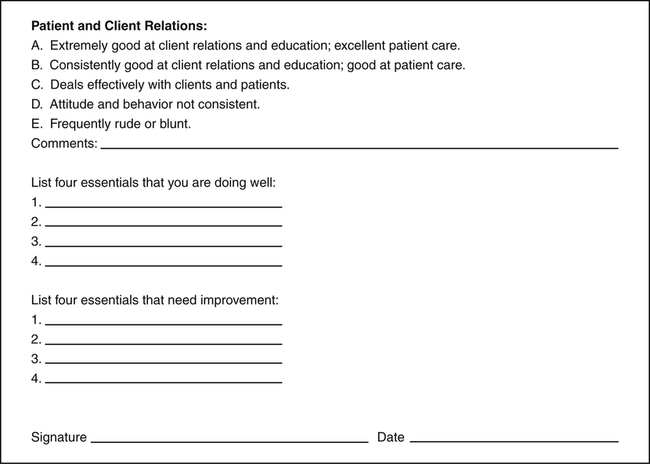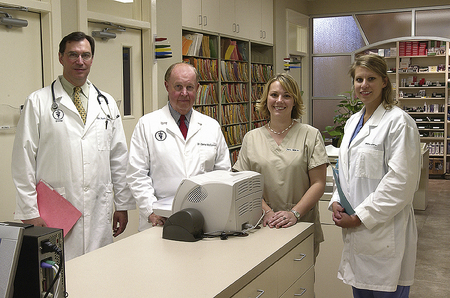CHAPTER 25

Professional Development
Mastery of the content in this chapter will enable the reader to:
• Identify the importance of professional development.
• Identify skills that one possesses.
• Discuss career fields that are available.
• Explain how to develop an effective cover letter.
• Explain how to develop an effective resume.
• Discuss how to email cover letters and resumes.
• List methods used to prepare for an interview.
• List questions to ask a potential employer.
• Discuss how to follow up after an interview.
• Differentiate offers of employment.
SELF-ASSESSMENT
Knowledge of oneself can enhance personal strengths while helping become aware of unknown weaknesses, tolerances, or risks (Figure 25-1). Personalities, styles, and accomplishments will help guide personal assessment. The Myers-Briggs Type Indicator, Campbell Interest and Skill Survey, 16 Personality Factors, and transferable skills assessments are just a few self-evaluation tests.
MARKETING SKILLS
Marketing starts with personal interactions within a profession or industry being investigated. Individuals must appear professional and confident as they explore employment opportunities (Figure 25-2). Many benign conversations can quickly change to an unscheduled interview once managers and representatives begin discussing employment opportunities.
 PRACTICE POINT
PRACTICE POINT

 PRACTICE POINT
PRACTICE POINT PRACTICE POINT
PRACTICE POINT
 What Would You Do/Not Do?
What Would You Do/Not Do?


